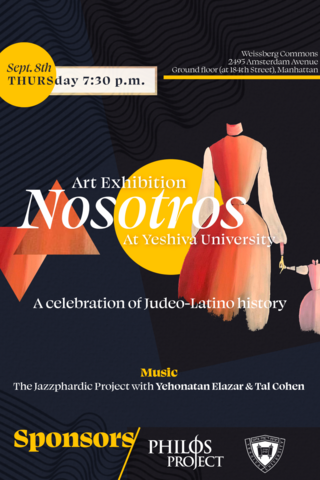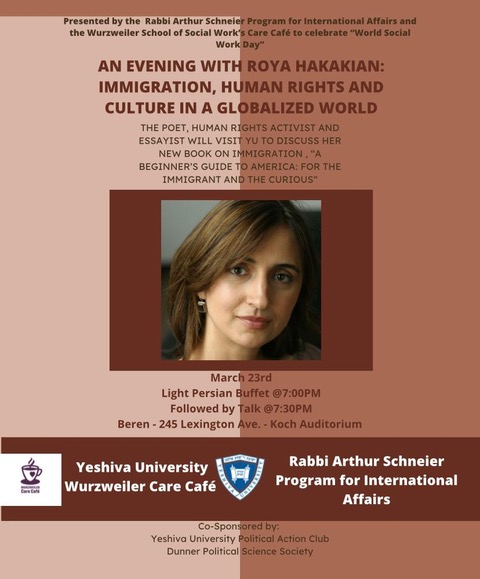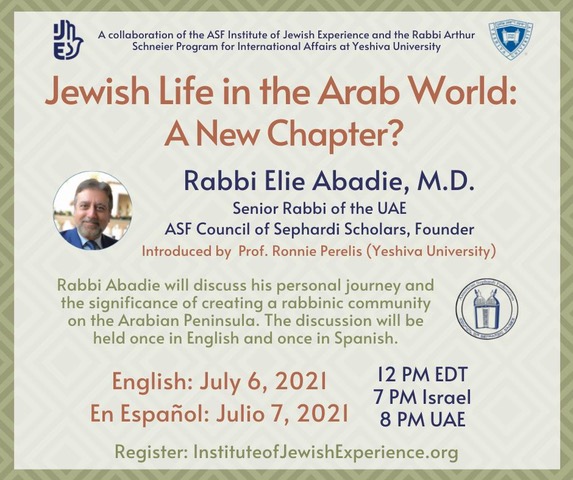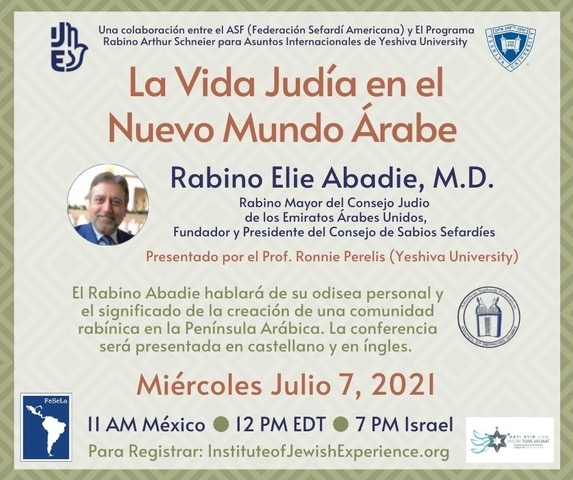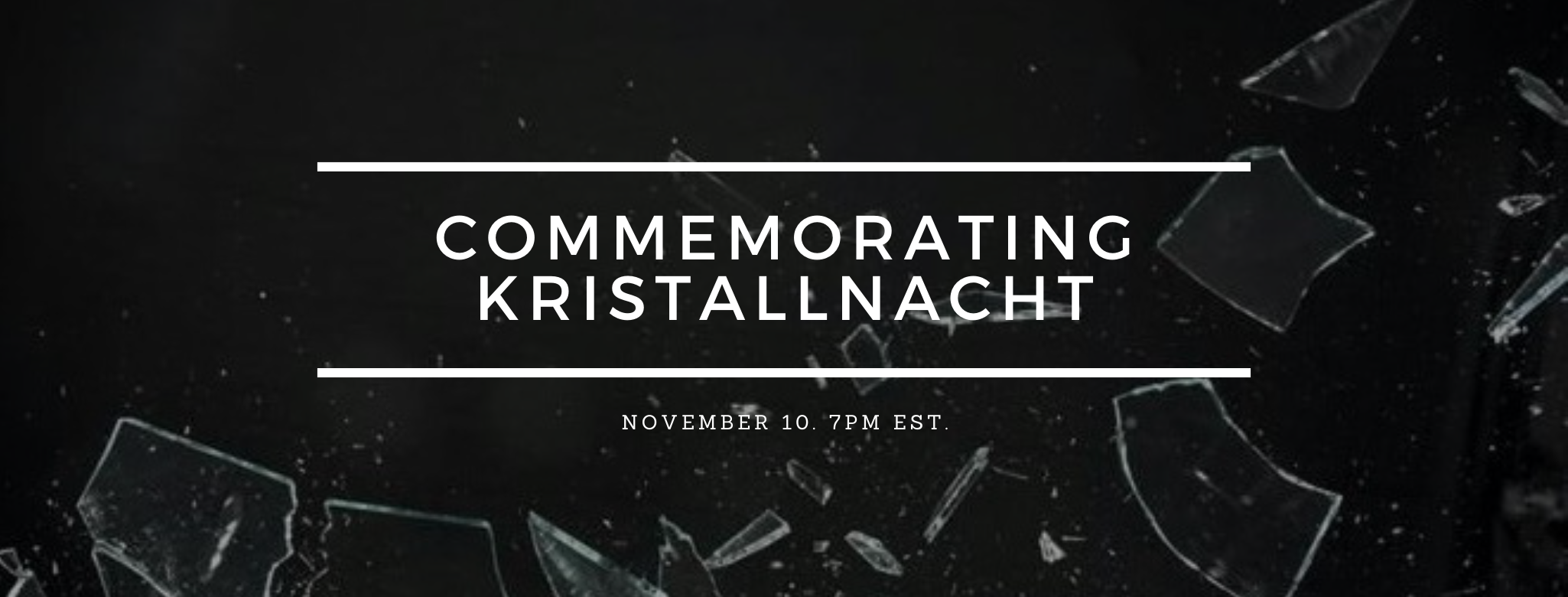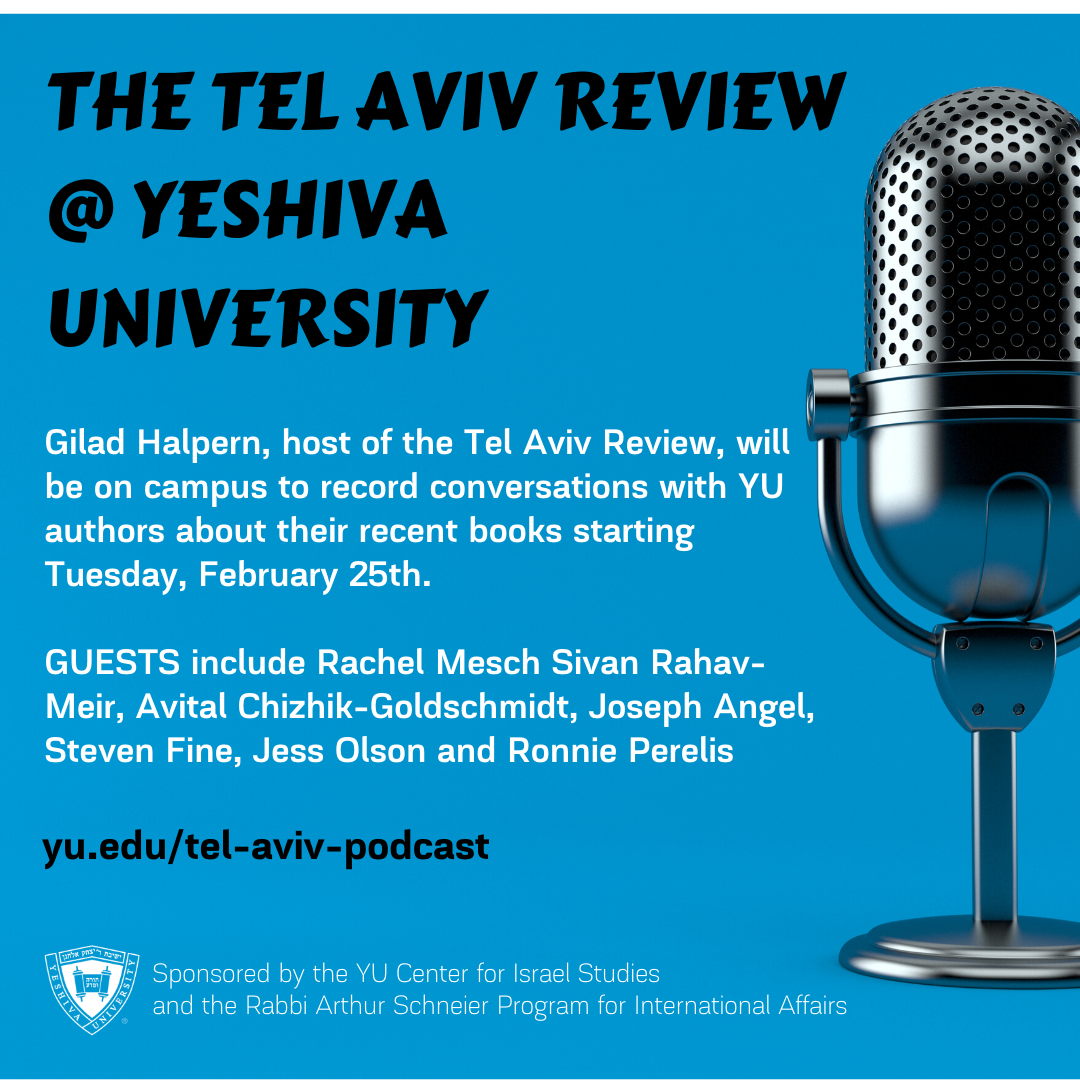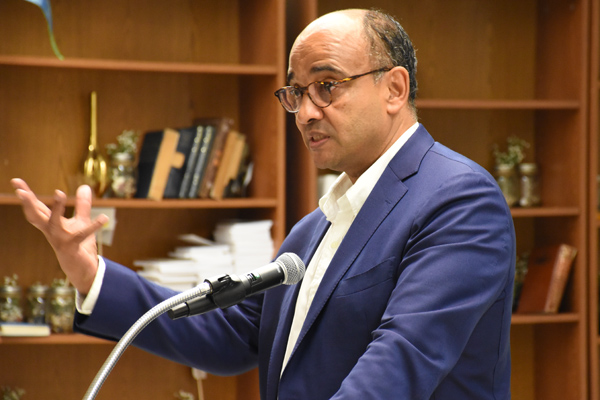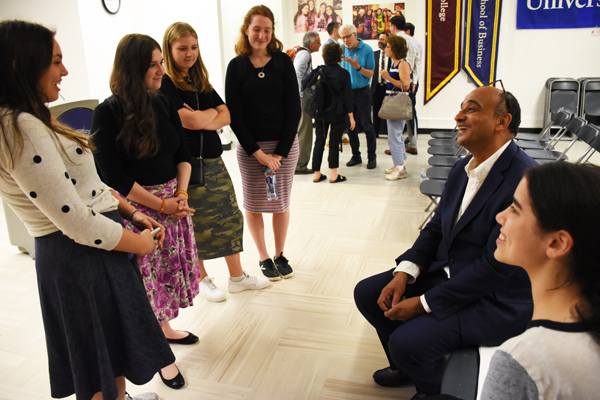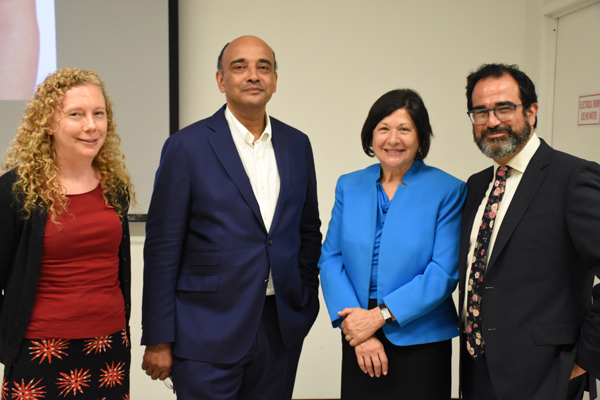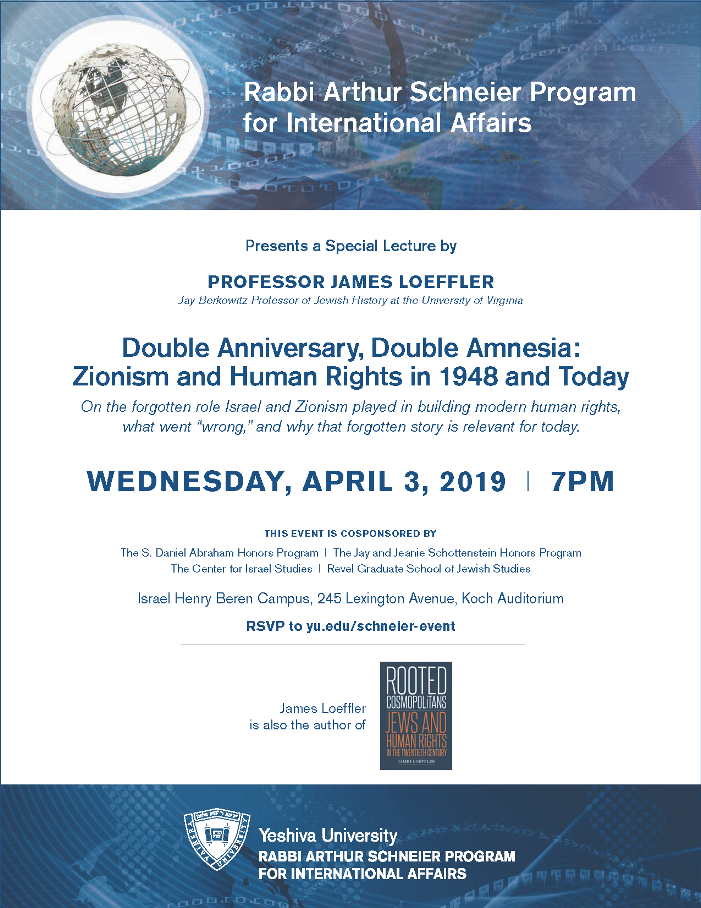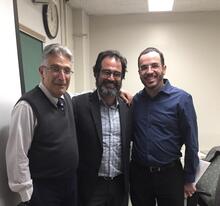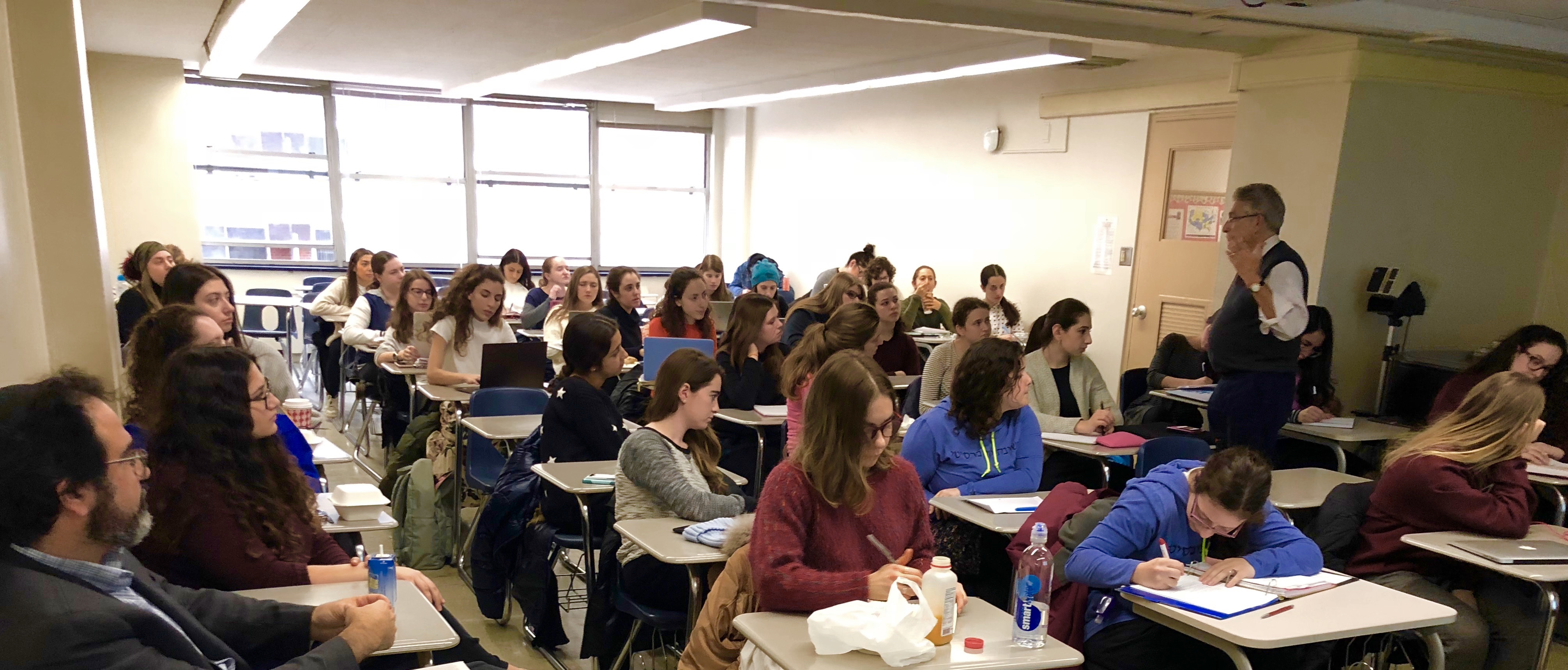
News & Events
Nosotros Art Exhibition at Yeshiva University
The Rabbi Arthur Schneier Program for International Affairs at Yeshiva University is proud to partner with Philos Latino to host Nosotros@YU, an evening of Jewish Latino Art and Music. On Thursday September 8th at 7:30 at Yeshiva University’s Washington Heights campus we will present paintings from Nosotros’ 5-year retrospective exploring the rich synergy of Jewish and Latino culture and history.
This night of celebration will include, for the first time in New York City, the Jazzphardic Project with Yehonatan Elazar and Tal Cohen. The Jazzphardic Project explores Sephardic classics through the modes of Latin jazz, bringing together east and west and past and present. https://jazzphardic.com/
Brief remarks by special community and government leaders such as Representative Adriano Espaillat and others.
Come join us at Nosotros on September 8, 2022 at 7:30pm ET at the Weissberg Commons at Yeshiva University. The address is 2495 Amsterdam Avenue, Ground Floor (at 184th Street), Manhattan.
Light refreshments will be served. We hope that you can join us.
Sponsored by American Sephardi Federation, Yeshiva College, Care Café at the Wurzweiler School of Social Work, Bernard Revel Graduate School, Jay and Jeanie Schottenstein Honors Program, YU Libraries, Stern College Judaic Studies, International Club, Music Club and YUPAC.
Past Events
War in Ukraine: Trauma and Repair
The war in Ukraine has been top of mind for so many people in the YU community because of the many personal, professional and spiritual connections that the University has with that part of the world.
To help people find their footing as they react to the news coming out of Ukraine, the Rabbi Arthur Schneier Program for International Affairs, with support from a number of YU-affiliated groups,* convened the fourth of a series of panel discussions bringing the academic expertise of Yeshiva University to bear on both understanding the war in Ukraine and promoting acts of chesed [charity] to bring it to an end. Read more..
A Beginner’s Guide to Roya Hakakian
An Evening With the Acclaimed Writer and Persian Poet
On Wednesday, March 23, 2022, the warm and intimate space of the Yagoda Commons on the Beren campus was the perfect venue for students and faculty, both in the room and through the magic of Zoom, to meet Roya Hakakian, author of A Beginner’s Guide to America: For the Immigrant and the Curious as well as a collection of poetry in Persian and an acclaimed memoir in English called Journey from the Land of No, just to name a few of her many literary accomplishments.
Read more..
Explore More Past Events
An Evening with Roya Hakakian:
Immigration, Human Rights and Culture in a Globalized World.
Wednesday, March 23: 7 pm Light Persian Buffet followed by Talk at 7:30 pm.
245 Lexingting Avenue, Koch Auditorium or
Livestream at yu.edu/yuvoices
On Tuesday, July 6, and Wednesday, July 7, Rabbi Elie Abadie, M.D., the Senior Rabbi of the United Arab Emirates (UAE), spoke about “Jewish life in the New Arab Word: A New Chapter?” in both English (July 6) and Spanish (July 7), focusing on the emerging Jewish community in the UAE.
The event was hosted by the Rabbi Arthur Schneier Program for International Affairs along with several international partners: the Institute for Jewish Experience at the American Sephardi Federation (ASF) and two Latin American Partners—the Majón Torá veDa’at Monte Sinaí of Mexico City and FeSeLa, the Sephardic Federation of Latin America.
Tuesday, November 10, 2020 from 7 - 8 PM EST
The Schneier Program sponsored a visit by Gilad Halpern, host of the Tel Aviv Review, to record conversations with YU authors about their recent books.
Kwame Anthony Appiah: Noted Scholar and Ethicist Believes We Should All Be Citizens of the World
On Wednesday, Sept. 4, 2019, Kwame Anthony Appiah, the noted scholar, teacher and ethicist for the New York Times Magazine, spoke to an audience of close to 200 students, faculty and staff about “Managing Our Multiple Identities,” a subject he explores in his most recent book, The Lies that Bind: Rethinking Identity, and which, in one manner or another, he has studied throughout his entire professional career.
The presentation was sponsored by the Rabbi Arthur Schneier Program for International Affairs (Dr. Ronnie Perelis, director) and the S. Daniel Abraham Honors Program (Dr. Cynthia Wachtell, director).
Appiah began laying out his theory of human identity by speaking about himself, the child of a British mother and a Ghanaian father, a brown-skinned man with what he described as a “vaguely British accent” who is happily married to his husband. Just as his identity is shaped by this mix of gender, creed, country, color, class and culture, so is the identity of everyone in the audience.
And these elements of identity do not stay still. At one point in a person’s life, one element may be in ascendance, but as time passes, others may become more prominent. In addition, the meaning assigned to these elements changes as well: “All these dimensions of identity are contestable,” he noted, “always up for dispute.”
Thus, a person’s identity, the sense of who he or she is in the world, is not a settled matter but one always available to change and reform.
But why, Appiah mused, does any of this matter? Because our survival as a species depends upon a deeper and better understanding of ourselves.
As he says in The Lies that Bind, “Much of our contemporary thinking about identity is shaped by pictures that are in various ways unhelpful or just plain wrong.” These legacies of thinking took their modern shape in the nineteenth century, and “it is high time to subject them to the best thinking of the twenty-first.” Appiah believes that “much of what is dangerous about [these legacies] has to do with the way religion, nation, race, class, and culture can be the enemies of human solidarity,” the “horsemen of a score of apocalypses from apartheid to genocide. We need to reform them because, at their best, they make it possible for groups, large and small, to do things together.”
In the end, he stated, the challenge to the human species at this particular moment in its history of division, partisanship, distrust and violence is to find a middle way that encourages us to secure for everyone “the rights enunciated in the Universal Declaration of Human Rights while caring for our own tribes and their common projects.”
For Appiah, this middle way is called “cosmopolitanism,” which he defines as “a spirit of global citizenship” predicated on a common humanity. “We live with over 7 billion humans on a small, warming planet. The cosmopolitan impulse that draws on our common humanity is no longer a luxury; it has become a necessity. If you want to protect the world, it helps to see yourself as a citizen of the world.”
He ended by quoting the words of Publius Terentius Afer, stated over two millennia ago: “I am human, I think nothing human alien to me.” “Now there’s an identity,” Appiah said with a smile, “that can bind us all.”
and Prof. Richard Hidary
This past week the Rabbi Arthur Schneier Program in International Relations hosted the world-renowned scholar Norman Noam Stillman to Stern College. Prof. Stillman drew on his decades of research into the Jews of the Islamic World to discuss the complex socio-economic and geo-political forces that set the stage for the unique culture that the Sephardim developed in the medieval period. He discussed the interconnectedness of the wider Islamic world, the free-flowing trade networks and their impact on Jewish society. He also brought a meta-historical approach to the topic by exploring the ways that the history of Medieval Spain often gets romanticized by modern scholars and lay people alike. He argued that this romanticization obscures the real brilliance of the culture and the complex realities of life during the medieval period . Stillman also analyzed the way this past is utilized for ideological polemics about contemporary culture and politics.
Prof. Stillman’s talk was part of the Diasporas project at the Schneier Program
Sponsored by the Rabbi Arthur Schneier Program for International Affairs, the Yeshiva College Political Science Society and the International Club.


